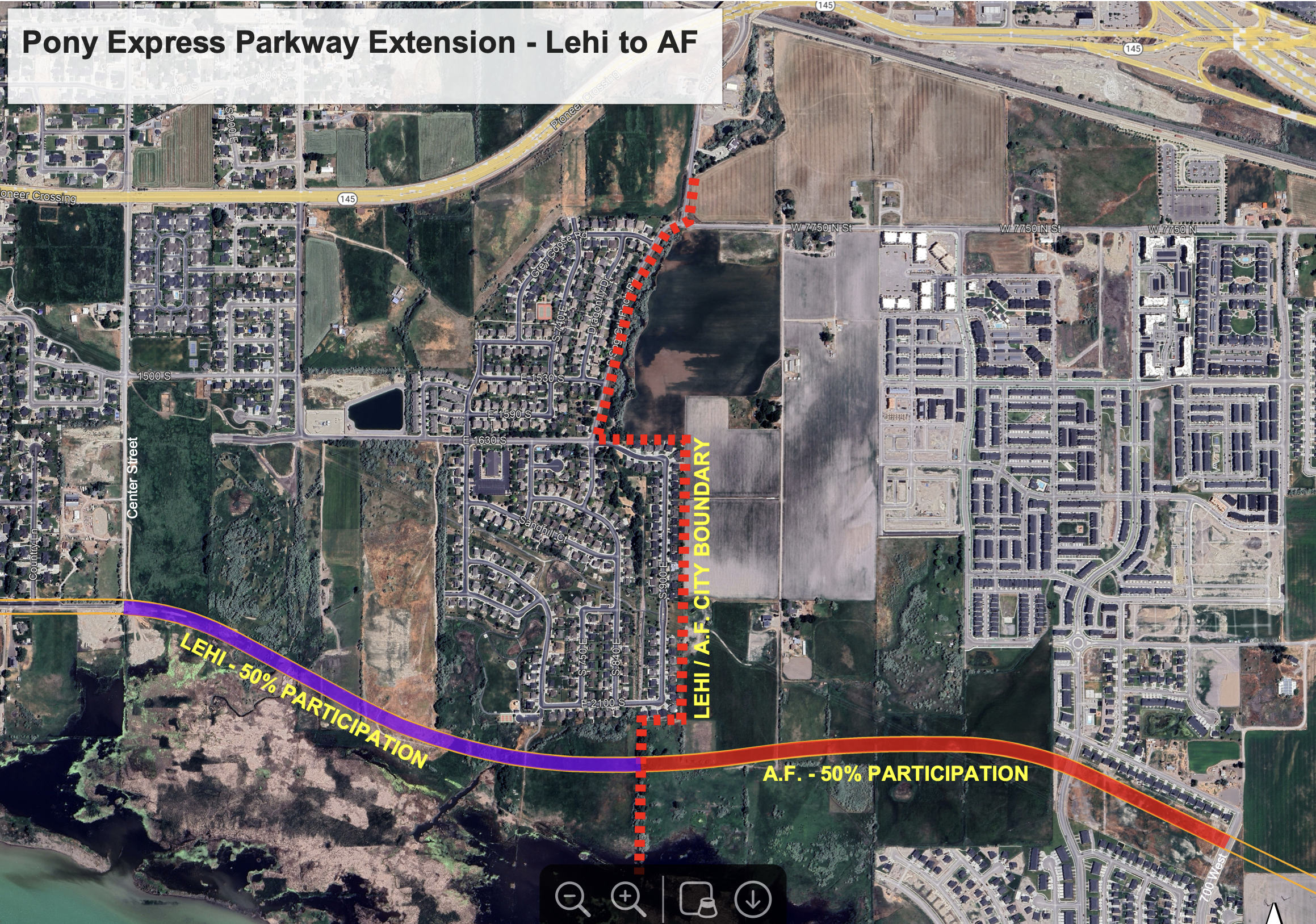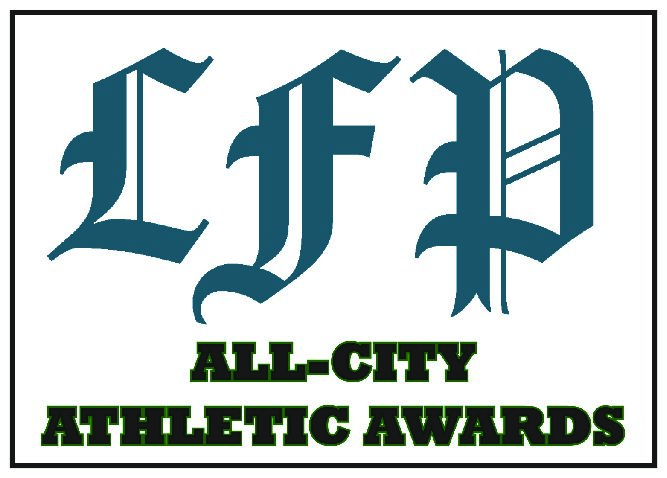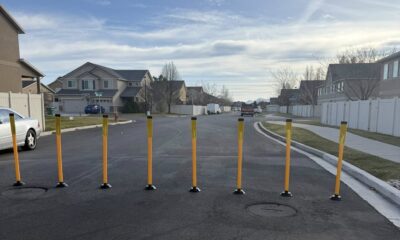Connect with us
Published
4 months agoon

Rob Shelton | Lehi Free Press
American Fork and Lehi will share the burden of a financial match to build a critical east-west corridor that could transform traffic patterns for thousands of commuters — but only if they can navigate environmental hurdles and secure right-of-way from property owners.
The American Fork City Council approved an interlocal cooperation agreement Tuesday, Aug. 12, that commits both cities to splitting costs 50-50 for the Pony Express Parkway extension. Lehi is anticipated to approve the interlocal in its upcoming meetings.
The project would connect Lehi’s existing Pony Express (1900 South) to American Fork’s 700 West, creating a new route to relieve congestion on overcrowded arterials.
“This is a very important road to the region,” Mayor Brad Frost said during the council meeting. “We need to be good neighbors, but we can’t do it at the expense of gridlock to our area.”
The Mountainland Association of Governments (MAG) approved $12 million for the project, with $1 million available immediately for design work. The remaining $11 million won’t be released until 2027, meaning construction likely won’t begin for several years.
But that timeline could work in American Fork’s favor. AF City officials worry about dumping additional traffic onto 700 West before connecting roads are built. Sam Kelly, the city’s public works director, said any leftover funds could extend the road north on 700 West to provide better traffic flow.
“We’re going to have a bit of a conundrum to have these two lanes pointing right to 700 West, and we’re not going to be able to go anywhere,” Kelly told the council.
Environmental challenges loom large. An endangered plant species called the Ute ladies-tresses could delay or alter the project significantly. According to the U.S. Fish and Wildlife Service, “Ute ladies-tresses is a perennial herb with erect, glandular-pubescent stems 12-60 cm tall arising from tuberous-thickened roots.” Consultants are finishing their analysis of the plant’s presence along the proposed route.
The project will secure enough right-of-way for an eventual five-lane road — two lanes in each direction with a center turn lane — but will initially construct only two lanes, one in each direction. Additional lanes will be built later as funding and traffic demand allow.
Kelly said early conversations with property owners have been “pretty positive,” though acquisition negotiations haven’t begun in earnest.
Under the agreement, Lehi will handle property acquisition west of the city boundary while American Fork manages purchases on its side. Each city must follow its own design standards and procurement policies for work within their jurisdictions.
Councilmember Clark Taylor called the project “critical” for western Utah County development, while council member Ryan Hunter emphasized the need for connecting infrastructure.
“The last thing we want to do is push that traffic into this area that’s already catastrophic,” Hunter said.
Hunter expressed concerns about changing traffic patterns before supporting infrastructure is complete. He worried about creating additional congestion on roads that already struggle with current volumes.
“We can’t dump all of that traffic into a sublet,” Mayor Frost agreed, acknowledging the delicate balance between regional cooperation and local impacts. “We’re going to be a little selfish and make sure that we can use it for ourselves.”
Kelly addressed those concerns by explaining the project’s flexibility. If leftover funds remain after the main construction, the money could extend improvements north on 700 West to provide better traffic flow options.
“We’re going to have a bit of a conundrum to have these two lanes pointing right to 700 West, and we’re not going to be able to go anywhere,” Kelly explained to council members.
The timing could work in American Fork’s favor, though. Kelly said the complex approval process — including environmental studies, right-of-way acquisition and permitting — means construction likely won’t begin for several years.
“To think that we would be shovel ready in 2027 would be really aggressive, and the stars would have to align for us to get all that in order,” Kelly told the council.
That timeline gives the city breathing room to complete other transportation projects, including the proposed Lake Shore Drive extension that could provide additional east-west connectivity.
Councilmember Ernie John stressed the importance of prioritizing connecting roads alongside the Pony Express extension.
“We have to make sure that we prioritize the continuation of that because we can’t dump all of that traffic into [existing problem areas],” John said.
Both cities will contribute a 6.77% local match, totaling about $858,687, split equally between the municipalities. American Fork will pay roughly $429,344 under the cost-sharing formula.
The agreement requires a separate funding agreement with MAG and Utah County before construction can begin. Lehi will serve as the lead agency for payments and reimbursements, then bill American Fork for its share of costs.
Each city will own and maintain the completed roadway within its boundaries. The 10-year agreement can be terminated by either party with 60 days’ written notice.



Give a piece of Lehi from the Lehi Historical Society gift shop


Students, Jazz Bear team up for annual holiday shopping event


The Ruth’s “Charlie and the Chocolate Factory” a whimsical treat


Lehi Free Press


UCHD confirms new measles case in Utah County


Barriers near 2100 West cause confusion for Lehi residents


Lehi to host national hoops showcase


Pioneer boys begin with tough schedule


Falcon boys make promising start


Falcon girls start 3-1 in hoops
